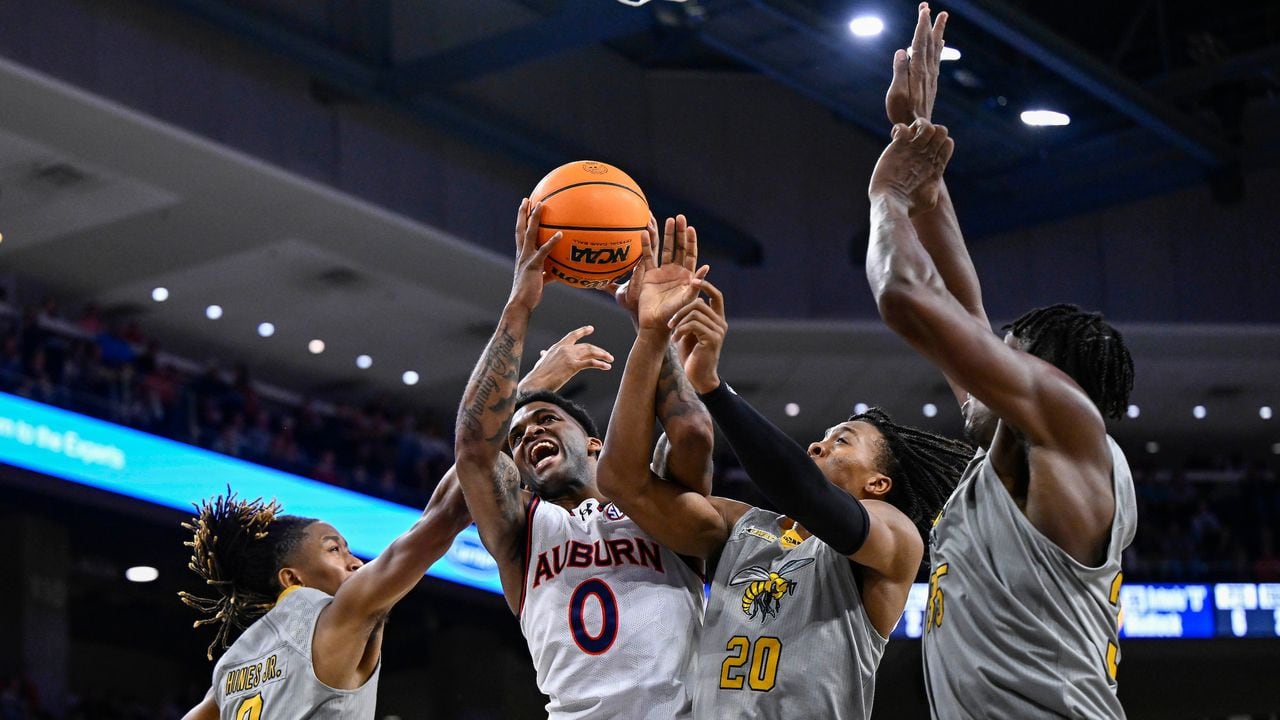Auburnâs Bruce Pearl reveals âNo. 1 concernâ vs Mississippi State, rest of SEC play
In Wednesday night’s win streak-snapping loss to the Alabama Crimson Tide, for just the sixth time of the season, the eighth-ranked Auburn Tigers were out-rebounded as Alabama tallied 46 rebounds to Auburn’s 41.
But against Alabama, it wasn’t the simple fact that Auburn was out-rebounded that truly cost the Tigers the game. Five times this season, Auburn has been out-rebounded by its opponent, but still managed to win. Instead, it was the way in which they were out-rebounded at Alabama that made the difference.
When under its own basket, Alabama pulled down 16 offensive rebounds to Auburn’s 29 defensive rebounds, meaning the Crimson Tide collected its own rebound 35.5% of the time.
Meanwhile, when at Auburn’s basket, the Tigers pulled down 12 offensive rebounds to the Crimson Tide’s 30 defensive rebounds — meaning Auburn collected its own rebound 28.5% of the time.
And while that difference might not sound like much, in a close rivalry game such as Wednesday’s at Alabama’s Coleman Coliseum, even the smallest advantage on the glass can pay dividends — especially if the team pulling down the offensive rebounds is converting via second-chance shots.
And such was the case Wednesday night, as Alabama tallied 21 second-chance points to Auburn’s 12.
“That and the 3-ball were the differences in the game as far as them getting 79 points,” Auburn head coach Bruce Pearl said after Auburn’s 79-75 loss to Alabama, which gave the Tigers their first loss in SEC play, while also snapping their 11-game win streak.
Alabama’s 21 second-chance points were the most Auburn has allowed all season. Prior to, Southeastern Louisiana’s 19 second-chance points was the mark to beat.
“It’s a huge factor. Let’s face it, it was second-chance points that beat us against Alabama, when they were playing small ball. And, so, that is obviously a huge concern,” Pearl said Friday when asked about the importance of Auburn’s defensive rebounding.
And against its next test in Mississippi State — as well as the opponents that follow as SEC play continues to unfold — the rebounding challenge doesn’t become easier for Auburn.
Mississippi State ranks inside the top-40 in the country in offensive rebounding rate, pulling down its own rebound 32.6% of the time. In the Bulldogs’ last time out against Florida, that offensive rebound rate ballooned to 40.5%.
“Mississippi State is gonna be running to the boards tomorrow,” Pearl said Friday.
Against the Bulldogs, Pearl said he’s expecting to use some of his “smaller guards,” likely meaning a familiar rotation of freshman Aden Holloway, sophomore Tre Donaldson and senior KD Johnson — all who measure 6-foot-3 or under.
“Our smaller guards — and we’ll play two or three smaller guards out there — have gotta do a better job of keeping them off the boards,” Pearl said Friday.
Through 19 games, Auburn’s defensive rebound rate comes in at 72.4% on the season, which ranks the Tigers’ 196th in the country and 11th in the SEC.
“Gotta do a better job with that. It’ll be absolutely our No. 1 concern when we play the best teams on our schedule. I hate to be right sometimes. But my concern of where we were with our defensive rebounding — that’s a big part of it.”
No. 8 Auburn (16-3, 5-1 SEC) will look to bounce back from its loss to Alabama on Saturday afternoon at 2:30 in a game against Mississippi State (13-6, 2-4 SEC). Saturday afternoon’s matchup in Starkville will be televised on the SEC Network.
